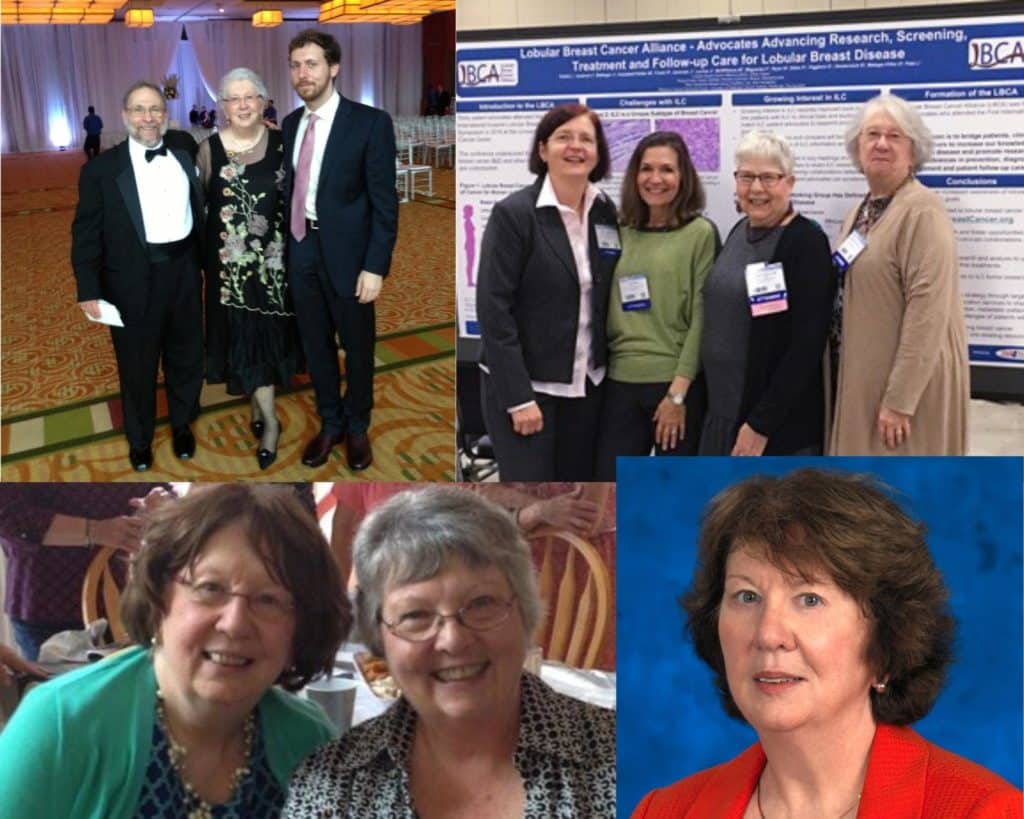
Margaret (Meg) Katherine Campbell-Kotler, BSN, MPH, of Maryland, one of the Lobular Breast Cancer Alliance’s (LBCA) founding patient advocates, lived a life based on caring. We mourn her passing in January 2022.
A native New Yorker, Meg grew up in Queens and used her nursing degree from Niagara University to begin to fulfill her public health career goals. She worked with new mothers and children in Westchester County, NY, and after obtaining her master’s degree in public health from the University of North Carolina, Chapel Hill, she joined the Montgomery County, MD, Department of Health and Human Services to embark on a 30-year journey promoting health for children, families, and senior citizens.
Later in life, she joined the Defense and Veterans Brain Injury Center supporting veterans experiencing traumatic brain injury and their families. She went on to become the Department of Veterans Affairs’ national program manager for caregiver education and training until her retirement in 2016. She was honored in 2011 as an outstanding alumna of Niagara University for her contributions to nursing and community health.
Meg also had a parallel career advocating for her own and others’ health in the face of cancer, particularly lobular breast cancer. For 22 years she researched physicians, hospitals, tests, medications, and treatments for breast cancer, including following her diagnosis of invasive lobular carcinoma (ILC). She was a premier example of a patient fully participating in their treatment. Meg was known for facing her health challenges with directness but also with a belief in living life fully.
During her initial radiation regimen, she took a break to go on a long-awaited trip to Paris with her husband, John. She was also a loving mother to her son David, who motivated her to face her first and subsequent cancer diagnoses with a fierce strength backed by knowledge, research, and a commitment to being an equal partner in managing her health.
She believed in self-advocacy as much as she believed in empowering others. Thus, she found LBCA to be a home for her advocacy skills, professional expertise, and belief in the benefits of science.
Meg attended several meetings with ILC patient advocates including the first International ILC Symposium in Pittsburgh in 2016 that prompted the founding of LBCA. After that she joined LBCA’s volunteer patient steering committee and worked with her patient advocate peers on LBCA activities to raise awareness of ILC and promote the importance of more research.
She enjoyed the intellectual challenge of meeting with experts, examining studies, and developing education materials. This too was living well for Meg—using her skills and abilities to care for others.
LBCA peers who with Meg helped launch the first iteration of LBCA remember her as someone who truly pitched in and was instrumental in helping get LBCA started. LBCA founder Leith Pate recalled how helpful it had been that Meg was a nurse and sensitive to how to communicate information about ILC most effectively to patients. This skill was important in creating the first Frequently Asked Questions document shared on LBCA’s new website.
“She really made sure that this information struck the right tone for patients and communicated the material accurately and clearly, which was so important because the FAQ is one of the first places a newly diagnosed patient goes looking for answers on the LBCA website,” noted Leigh.
Founding advocate Lori Petitti shared how happy she was whenever she encountered Meg in a breast cancer grant review process or when they found each other attending the same breast cancer advocacy conference.
“Meg was so smart and kind, with a beautiful smile. She would always sit with me and my group … and go to dinner with us each night,” reflected Lori.
Another founding advocate shared, “I remember all that Meg did for LBCA and her professionalism and resilience. I will always remember her.”
We will all remember Meg and miss her very much.

